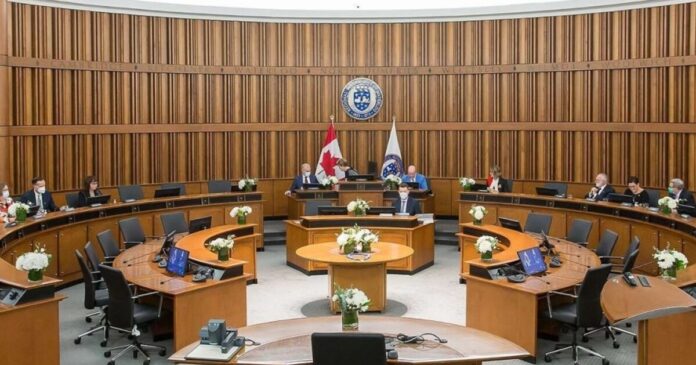Waterloo Region councillors voted unanimously to approve an amended bylaw that bans any communication that makes people “feel harassed” on regional properties, after hearing from nearly 20 delegations at a tense meeting Wednesday night.
The bylaw, which purports to protect people from harassment based on protected grounds such as race, religion, gender identity and sexual orientation, was opposed by some residents who claimed it would violate their freedom of speech.
One of the key concerns was that the way the bylaw was written was open to subjective interpretation as to what constituted “being harassed.”
As originally written, the bylaw amendment added “communicating, causing or permitting communication, with any person in a way that causes the person, reasonably in all the circumstances, to feel harassed” to a list of “prohibited activites.”
It defined being “harassed” as “feeling tormented, troubled, worried, plagued or badgered.” Upon the final vote, the bylaw was amended to remove the above definition of harassment and a provision was added to insist that the amendment would not “prevent or limit a lawful protest.”
Muslim woman and One Million March for Children advocate Marium Ali spoke as a delegate and denounced the need for a bylaw to “protect people’s feelings.”
“I wonder why we need this amendment and what could be the unintended consequences of prioritizing hurt feelings over the charter rights for all of us to speak,” said Ali.
The meeting was filled with high emotions and occasional disruptions, as some delegates who oppose identity politics in schools confronted others who support inclusive education policies.
The councillors considered the delegations for nearly four hours before passing an amended version of the bylaw.
A sentence affirming a commitment to the Canadian Charter of Rights and Freedoms was also added to the final bylaw.
“How can we have any confidence that such a bylaw will be enforced uniformly and without inequitable prejudice when a violation is inherently a matter of personal opinion on the part of the officer?” said transgender delegate Julia Malott.
“Placing restrictive covenants on the speech of others, even when done with the best of intentions, causes resentment and animosity toward marginalized identities to grow. Those individuals won’t blame you. They will blame me.”

